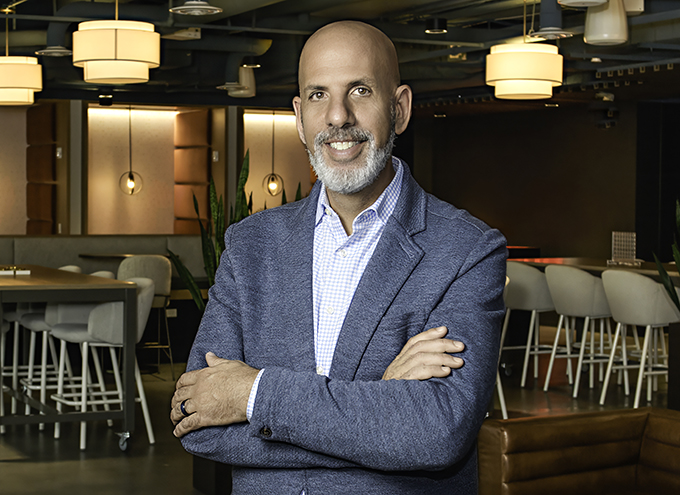Outdated Perceptions Widen the Manufacturing Labor and Skills Gap
August 17, 2022
At a glance:
- Main takeaway: The manufacturing industry is no stranger to dealing with labor shortages. While every industry continues to struggle with finding qualified talent in highly competitive markets, outdated perceptions of the manufacturing industry have widened the labor and skills gap.
- Impact on your business: Despite being put through the wringer the last two years due to the pandemic, if the manufacturing industry wants to overcome the labor and skills gap, they must renew perceptions to highlight high-tech facilities and cutting-edge technology to attract top talent.
- Next steps: Aprio’s Manufacturing and Distribution Services team can provide support and resources to help you discover opportunities that elevate your team.
Schedule a consultation with Aprio’s Manufacturing and Distribution Services team today.
The full story:
Manufacturing has been a dominant force for innovation, and yet an outdated perception of the industry is widening the labor and skills gap. It’s imperative to break away from the stereotypes of these false narratives as the number of unfilled jobs continues to grow.
It is time for manufacturing companies to reassess their hiring processes, improve the workplace experience and pave the way for the next generation of manufacturers who will contribute to the acceleration of technological advancements.
Switch up your recruitment methods to attract new talent
Attracting talent has been a struggle across all industries, however, the manufacturing industry is combating a labor shortage on top of a skills gap. While it’s logical to search for candidates who already possess the unique technical skills needed to perform the job, it’s pigeonholing manufacturers to a small and increasingly competitive talent pool. So, it may be time to reevaluate and elevate your recruitment strategy.
The pandemic has lit a spark in job seekers to refocus their values on what truly matters, not just in life but in the workplace, and they are laser-focused on companies that are doing the same. Whether your company attends job fairs or posts open positions online, it’s valuable to emphasize how you are investing in your employees. Share how your company is focused on employee-driven benefits, such as training opportunities to develop specialized technical skills, prioritizing inclusion and belonging and well-being programs as well as giving insights into your company culture. These may sound a bit too trendy, however, investing in these values and initiatives can set your manufacturing company apart.
Provide upskilling opportunities to your current employees
It’s likely you have built a team consisting of talented individuals. Before looking externally to fill highly technical open positions, consider promoting within your own team. Reinvest in your current employees by offering developmental opportunities through hands-on training and job shadowing to expand your employees’ abilities and close the skills gap. Then work to fill those more entry-level positions using your updated recruitment methods discussed above. Take it a step further and establish career paths to increase employee retention and productivity, which can also be used as a great recruiting tool.
Flexibility in the workplace is the golden ticket
The pandemic sparked a major shift in workplace culture and priorities. Employees across the globe are searching for companies that offer flexible work schedules on top of competitive wages. If your company is slacking in either of these areas, it decreases the likelihood for you to retain employees and compete for new talent.
While remote work in the manufacturing industry is limited as most jobs must be performed onsite, work flexibility has become a top issue for many people, especially parents who struggle with childcare services. To help you get started, you may want to survey your employees to get an accurate read on what work/life balance solutions they may need. Not only will this help you determine creative ways to incorporate flexibility benefits into your manufacturing company, but it will also show your employees you value their opinions. A few ideas to consider might be offering additional shifts to help employees who with childcare and/or family needs, improving maternal and paternal leave policies and enhancing vacation time with summer hours, free time off on an employee’s birthday and a floating holiday. ,
Get involved with the community and educational institutions
Millennials, Gen Z and the up-and-coming generations are hooked on technology. So, it would make sense that they are looking for opportunities to work with the most innovative technology, such as automation and artificial intelligence. Develop interest in manufacturing from an early age by connecting with local educational institutions, participating in community job fairs, and offering job shadowing opportunities. It is important to show the next generation that manufacturing is not just something our “forefathers” once did but consists of “smart” factories that are accelerating technological advancements in the US.
The bottom line
The manufacturing industry plays a significant role in the US economy. However, manufacturing companies continue to struggle with overcoming an old-school image of the industry to attract the talent they need to close the labor shortage and skills gap. Aprio’s Manufacturing and Distribution Services team can provide support and resources to help you elevate your team and build the next generation of manufacturers.
Schedule a consultation with Aprio’s Manufacturing and Distribution Team today!
Related resources
Recent Articles
About the Author
Adam Beckerman, CPA, CGMA
For more than 20 years, Adam has been enabling the success of manufacturers in all stages of the business lifecycle whether they are starting up, growing, or getting ready for an equity event. As the Partner-in-Charge of Aprio’s Manufacturing & Distribution Group and Lean Six Sigma Green Belt, Adam is passionate about helping established and high-growth manufacturers in the flooring, chemicals, plastics, and food industries drive efficiencies into their manufacturing processes.
(404) 898-7542
Stay informed with Aprio.
Get industry news and leading insights delivered straight to your inbox.

